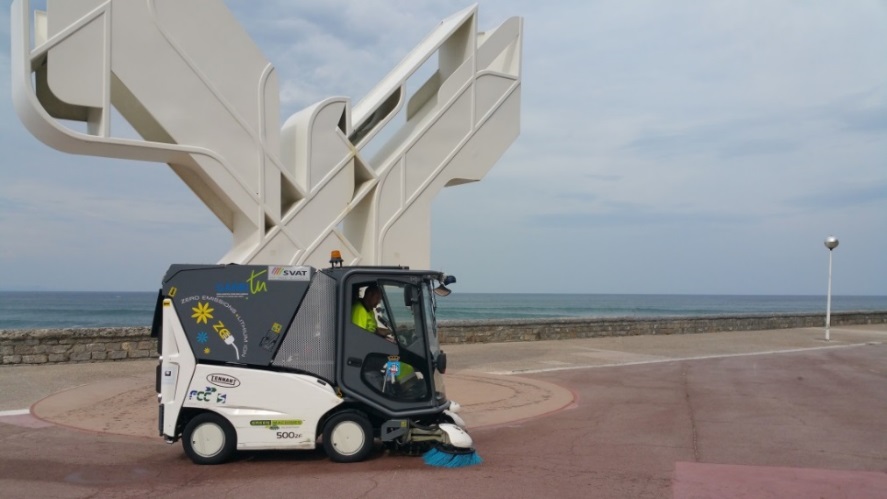Energy Efficiency
One of FCC Medio Ambiente strategic policies focuses on the sustainability of its activities, especially on minimising negative impacts on the environment. This strategy centres on analysing productive processes through the lens of innovation, so that minimum energy is used and, as far as possible, from renewable sources. In addition, for many years now the company has had a management system in place certified by AENOR based on the standards UNE-EN ISO 9001 and UNE-EN ISO 14001, according to European EMAS standards.

ZEV mechanical sweeper in San Sebastián, Guipúzcoa
FCC Environment has a fleet of 18,000 vehicles in service and every year manages more than 24.5 million tonnes of waste as a resource. Consequently, the greatest environmental impacts of its activity are derived from the energy consumption at treatment plants and vehicle fuel.
The publication of standard UNE-EN ISO 50001:2011 "Energy Management Systems" facilitated the implementation of an energy management system in the organisation that has also been certified by AENOR (No. GE-2013/0022) throughout Spain in 2016. This system allows FCC Environment to know how energy is being used in the provision of services and to implement efficiency measures, such as:
- The use of energy efficient vehicles (hybrid or 100% electric vehicles) or which use alternative fuels (natural gas). There are currently 3,228 of these eco-friendly vehicles in operation.
- The use of renewable energies at facilities to make them more sustainable, especially those produced at the facility itself.
- Training in efficient driving for workers.
- Replacing energy-consuming equipment with more efficient alternatives (lighting, electric engines, etc.).
- Route optimisation systems.
- Installation of LED lighting, which affords an "A" energy rating.
- Photovoltaic power generation facilities for own use.
- Installation of systems for measuring and controlling the electrical installation.
- Installation of solar thermal energy panels as support for heating and domestic hot water.
Energy efficiency is a process of continuous improvement, not only through technology but also by innovating in how operations personnel, whose engagement is essential, think about and address day-to-day problems.
These actions must be recorded, measured and monitored over time and extended as good practices to the rest of the organisation. To that end, a certified energy management system as is UNE-EN ISO 50001:2011 has proved to be a vital support.








